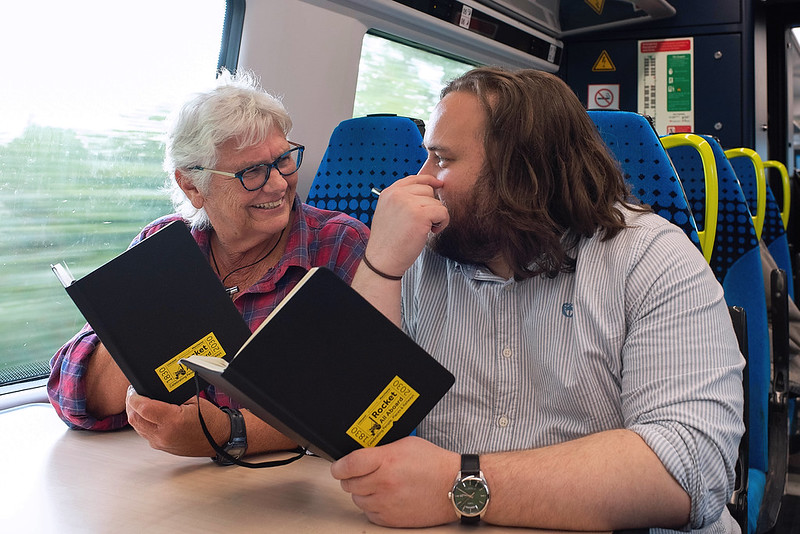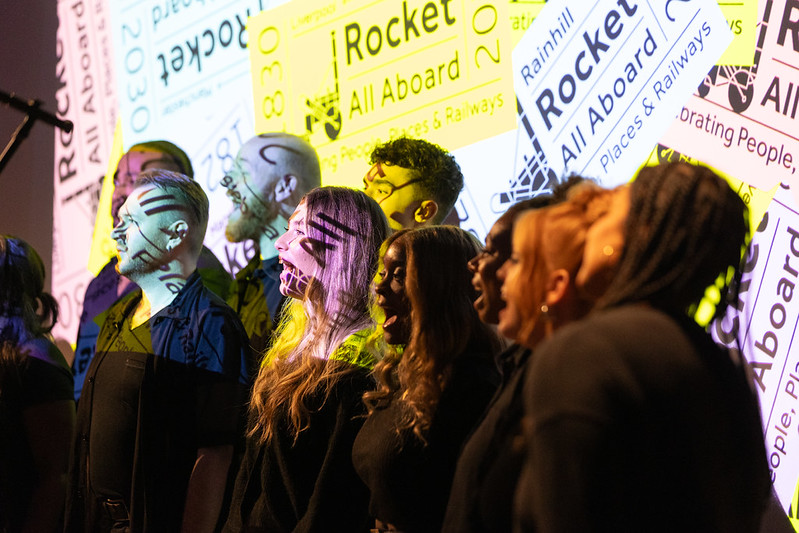Rocket: All Aboard
Celebrating People, Places & Railways
Rocket: All Aboard is a dynamic, multi-year programme (2029–2030) celebrating 200 years since the opening of the Liverpool to Manchester Railway — the world’s first inter-city passenger line.
This groundbreaking railway reshaped travel, trade, and the way we live. Today, Rocket: All Aboard will bring its story to life through experiences, exhibitions, live cultural events, research, and community projects across the North West and beyond.
The programme will highlight the railway’s role in connecting people and places, spark conversations around sustainability and innovation, and invite audiences of all ages to take part in this once-in-a-lifetime celebration of movement, heritage, and progress and how its story can inspire new journeys for the future.
Rocket: All Aboard has the potential to reach very diverse audiences including those who want to celebrate and enjoy the historic and contemporary railway aspects of the anniversary, and those who want to explore its social history including the financing of the line, the (largely) Irish labour force that built it, and the impact of the railways which developed at such pace in the North of England on technology, engineering, economics. politics and culture.
Rocket: All Aboard will be a collaborative project – between cities and towns, between private, public and third sectors, between science and the arts, and between large institutions and grass-roots organisations, who will take the lead, so that local communities can connect to the programme in a way that is most relevant to them and their place.
To sign up to the newsletter and to watch the animation of the story of the Liverpool to Manchester Railway click HERE.


Rocket:All Aboard will look back to an extraordinary period of history for the North West, and look forward to a better connected, cleaner, greener, and more equitable approach to public transport and community assets. It will chime well with national, regional, and local aspirations for communities and with Combined Authorities’ ambition for creative industries, skilled citizens, and green engineering activity. It will enable a new focus for the visitor economy across the region, attractive to a global market.
Our key steps are:
- To continue to collaborate with key stakeholders from culture, community, the built environment, train operations, education, and the visitor economy to develop a comprehensive blueprint for the 2027-2030 delivery phase. Starting with the Rainhill Trails in 2029.
- To continue to develop the Network Group meetings of individuals and partner organisations to act as a guiding group, supporting the development and progress of the project. This group will convene every six months, alternating between Liverpool and Manchester.
- Use our National Heritage Lottery Fund grant of 180K to lay the foundational groundwork for the project.
- Actively seek grants and sponsorships from a diverse range of partners and donors to build a robust funding package for 2027 – 2030.
- Engage with communities along the route to obtain accreditation for the Community Rail Partnership
Please contact: karen@manchesterhistories.co.uk if you would like further information or have an enquiry about the overall programme.
Please contact: paul@manchesterhistories.co.uk if you would like any further information about the development of the Community Rail Partnership or the Rocket: All Aboard community offer.
The chair and vice chair for Rocket:All Aboard are Paul Salveson and Jessica Bowles who will spearhead the project over the next few years. See more about Paul & Jessica HERE.
The development of the programme is currently being led by an Executive Steering Group. Partnership members HERE.

The Railway 200 team, who are leading the celebrations for the 200th anniversary of Modern Railway will support the project by sharing their knowledge and experience. A formal handover of learning and legacy is planned for 2026, ensuring continuity between the two landmark railway anniversaries. Railway 200

Thanks to National Lottery players.








